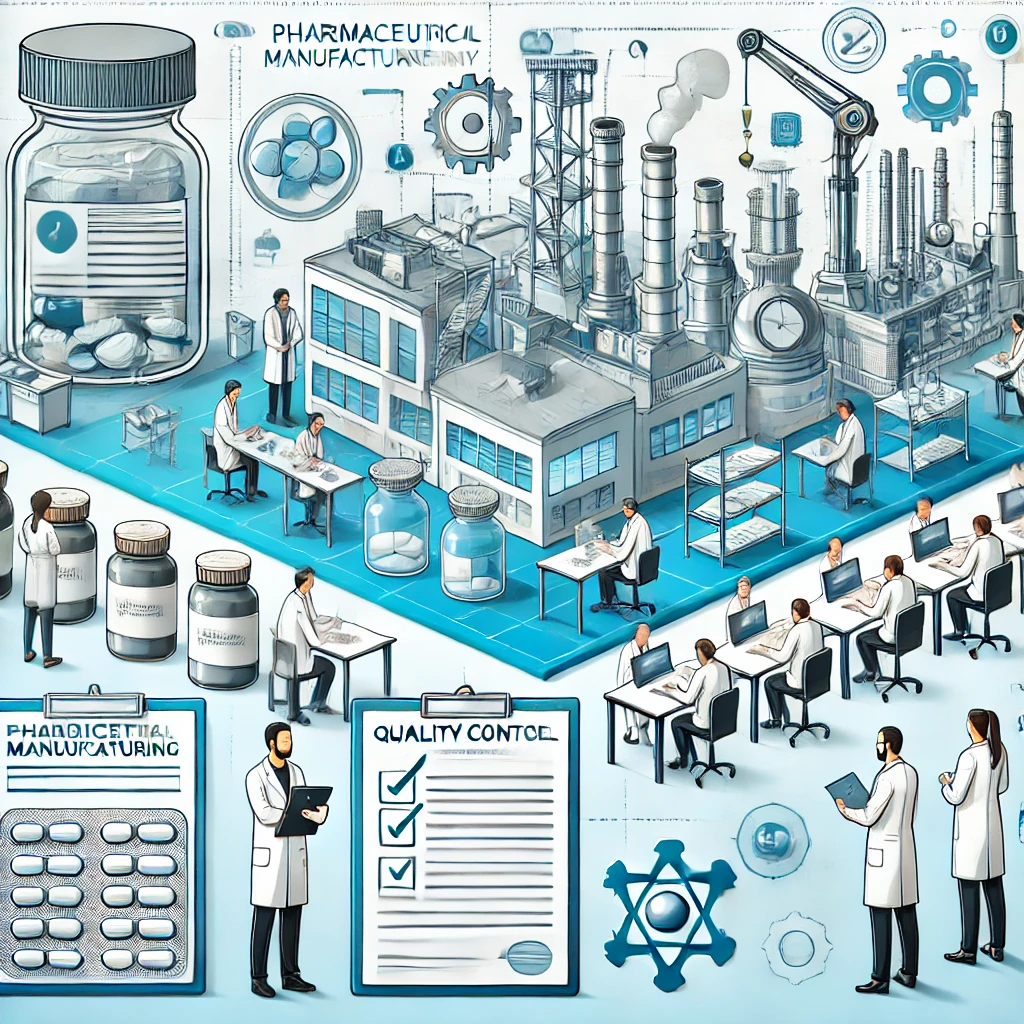Introduction
Starting a pharmaceutical manufacturing company is a lucrative business opportunity, given the increasing demand for medicines and healthcare products worldwide. However, setting up a pharma manufacturing unit requires a thorough understanding of regulations, compliance, investment, and operational procedures. This guide provides an in-depth, easy-to-read roadmap to help you establish a successful pharmaceutical manufacturing company.
Step-by-Step Process to Start a Pharma Manufacturing Company
1. Conduct Market Research
Before starting, conduct extensive research to understand the demand for different types of pharmaceutical products, competitors, market trends, and potential customers. Identify gaps in the market and decide whether to focus on generic drugs, branded medicines, or specialized pharmaceutical products.
2. Decide the Type of Pharma Manufacturing Business
There are different types of pharma manufacturing businesses, such as:
- API (Active Pharmaceutical Ingredient) Manufacturing
- Formulation Manufacturing (Tablets, Capsules, Syrups, Injectables, etc.)
- Contract Manufacturing
- Biotechnology Products
- Ayurvedic or Herbal Medicines Choose the business model that aligns with your expertise, budget, and regulatory compliance requirements.
3. Create a Business Plan
A well-structured business plan helps in securing funding and provides a clear roadmap. Your business plan should include:
- Business objectives
- Target market
- Investment and financial planning
- Manufacturing setup and infrastructure
- Marketing and sales strategy
- Regulatory and compliance requirements
4. Obtain Necessary Licenses and Permits
To legally operate a pharma manufacturing company, you need various licenses and approvals, such as:
- Drug Manufacturing License (Issued by the State FDA)
- Goods and Service Tax (GST) Registration
- Company Registration (Private Limited, LLP, or Proprietorship)
- Import-Export Code (IEC) (if dealing internationally)
- Environmental Clearance
- FSSAI License (if manufacturing nutraceuticals or dietary supplements) Ensure compliance with the Drugs and Cosmetics Act, 1940, and Good Manufacturing Practices (GMP).
5. Set Up the Manufacturing Unit
The manufacturing unit should comply with GMP and WHO guidelines. Key factors to consider include:
- Location: Choose an area with good transport, utilities, and industrial benefits.
- Infrastructure: Design clean rooms, laboratories, storage areas, and quality control sections.
- Equipment and Machinery: Procure machinery based on product requirements.
- Raw Material Suppliers: Source high-quality active pharmaceutical ingredients (APIs) and excipients.
6. Hire Qualified Professionals
Recruit skilled personnel such as pharmacists, chemists, microbiologists, quality control experts, and production staff. The presence of a qualified Production Head and Quality Assurance Head is mandatory for regulatory compliance.
7. Develop Quality Assurance and Control Systems
Quality control and assurance are crucial in pharmaceutical manufacturing. Implement stringent quality checks for raw materials, in-process products, and finished goods. Obtain ISO certification and ensure compliance with Good Laboratory Practices (GLP).
8. Branding, Packaging, and Marketing
- Branding: Choose a unique brand name and get it registered.
- Packaging: Ensure high-quality, tamper-proof packaging with proper labeling.
- Marketing: Use digital marketing, medical representatives, distribution channels, and B2B partnerships to promote your products.
9. Distribution and Sales Strategy
Partner with wholesalers, distributors, hospitals, and pharmacies to reach a larger market. Consider export opportunities if you plan to expand internationally.
10. Comply with Post-Launch Regulations
Regular audits, renewals of licenses, and adherence to new regulatory updates are essential to sustain your pharma business. Maintain batch-wise records, customer feedback, and pharmacovigilance data for drug safety monitoring.
10 Frequently Asked Questions (FAQs)
1. What is the minimum investment required to start a pharma manufacturing company?
The investment depends on the scale of operations. A small-scale pharma unit may require ₹50 lakh – ₹1 crore, while a large-scale unit can exceed ₹10 crores.
2. Do I need a pharmacy degree to start a pharma manufacturing business?
No, but you need to appoint a qualified technical person (such as a pharmacist or chemist) to oversee operations and regulatory compliance.
3. How long does it take to get a drug manufacturing license in India?
The approval process usually takes 3 to 6 months, depending on state regulatory authority processing time.
4. Can I start a pharma manufacturing business from home?
No, manufacturing medicines requires a dedicated GMP-compliant facility and cannot be done from a residential area.
5. What are the best locations to set up a pharma manufacturing unit in India?
Baddi (Himachal Pradesh), Hyderabad, Ahmedabad, Indore, and Pune are major pharma manufacturing hubs due to industrial incentives and infrastructure.
6. Is it necessary to get WHO-GMP certification?
WHO-GMP certification is not mandatory but highly recommended, especially for export-oriented businesses.
7. Can I manufacture multiple drug categories in one plant?
Yes, but you need separate sections and approvals for each category (e.g., tablets, syrups, injectables).
8. How can I find pharma distributors for my products?
You can connect with distributors through B2B platforms, pharma trade fairs, and industry associations.
9. What are the marketing strategies for a new pharma company?
Effective strategies include digital marketing, medical representatives, collaborations with hospitals, and direct sales to pharmacies.
10. Can I start a pharma manufacturing company without owning a plant?
Yes, you can opt for contract manufacturing by partnering with an existing manufacturing unit.
Conclusion
Starting a pharmaceutical manufacturing company requires meticulous planning, regulatory compliance, and substantial investment. By following the above steps, ensuring quality control, and implementing a strong marketing strategy, you can successfully build a profitable pharma business.
If you’re ready to take the plunge, start with market research, securing licenses, and setting up your GMP-compliant manufacturing facility today!
